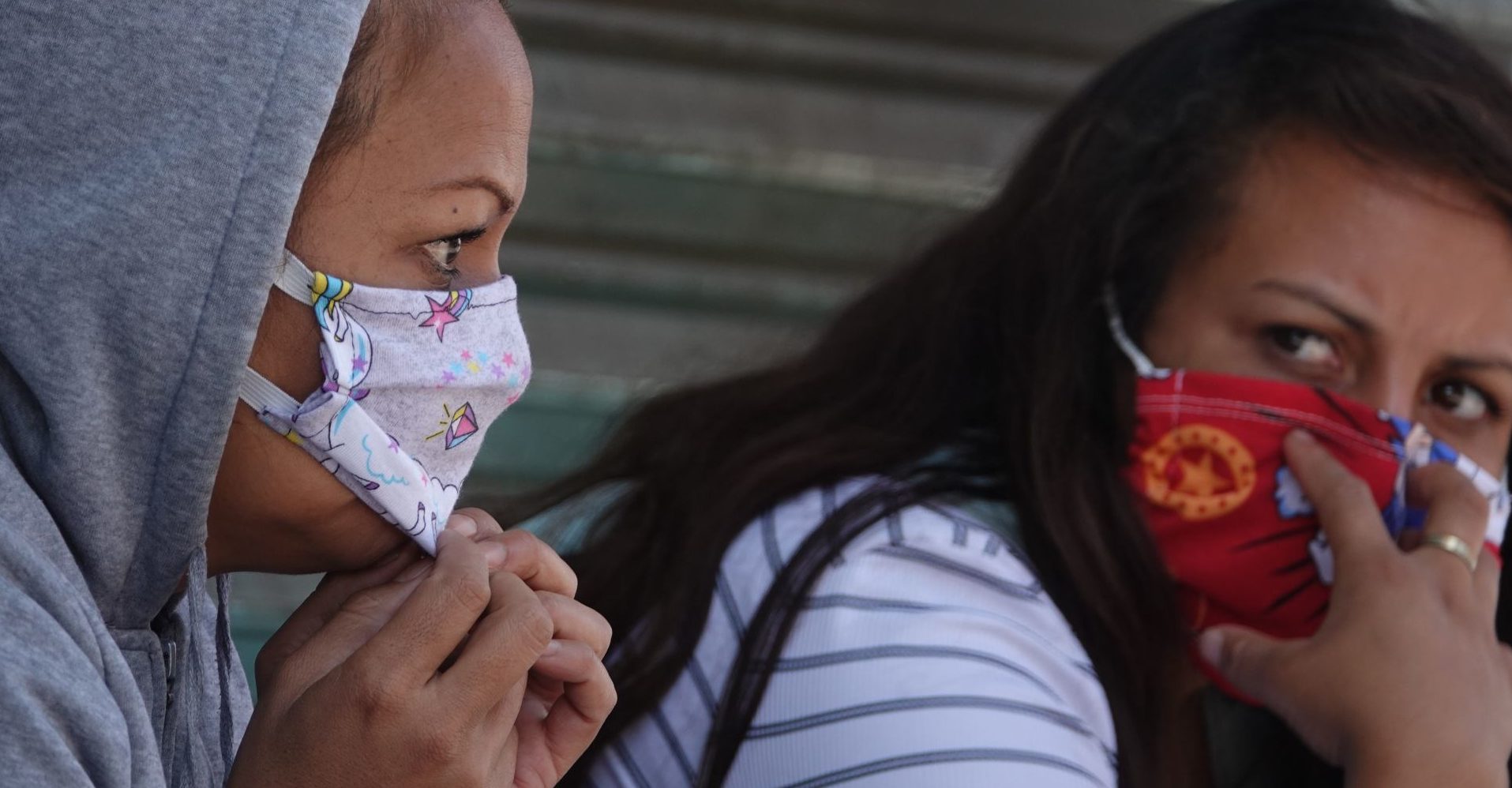
After a historic high of calls for violence against women to Locatel was recorded in Mexico City in March, reports were lowered in April.
According to the women’s line figures, updated on Tuesday by the CDMX Digital Agency, during April 11 thousand 610 emergency calls were received or to ask for guidance, i.e. 16 per hour, or one every three and a half minutes. This amount was 7.8% less than during March.
However, those to denounce “gender-based violence” remain well above the average that has been received monthly in the last 3 years, since this helpline existed. During April there were 746 reports for this reason, just a little less than the 812 march. But that figure is more than three times as many as there were in the same month of 2019, which barely reached 211.
The list by mayors from which the most users denounced this type of violence is led by Iztapalapa, with 90 calls, that is one in 10, followed by Gustavo A. Madero and Cuauhtémoc. While from the State of Mexico, 30 women called from Ecatepec.
As for “violence in the couple”, last month the Women’s Line received 100 reports, when in March there had been 163. That’s still 30% more than the monthly average recorded during 2019, which was 77 calls per month.
In 67 cases, the woman reported being from Mexico City; 27, from the State of Mexico; and the rest called from other entities.
While the so-called “family violence” did have a decline in the middle of a month to the next: from 460 in March to 221 in April, which is one of the lowest levels in the last year.
There they also top the list of mayors Iztapalapa and Gustavo A. Madero, with 36 and 18 calls. In the State of Mexico, Nezahualcóyotl recorded 10, doubled Ecatepec’s reports.
Formal attentions to violent women collapsed
For its part, the Attorney General’s Office of Mexico City (FGJ) released its updated report until the first week of May on the Violence Against Women (AVM) Alert, issued last November, where it is appreciated that while more complaints have been received in 2020 than in 2019, formal attentions have collapsed in institutions such as the Domestic Violence Support Centres (CAVI) and the three Women’s Justice Centres (CJM).
So far this year, 9,451 family violence research folders have been opened, 12.4% more than those held to date in 2019. The peaks were recorded in early March, before social estrangement measures began to control the COVID-19 pandemic, but just as the International Women’s Day march was held, which had a historic participation of around 100,000 attendees.
The graphs presented by the Public Prosecutor’s Office show that as of the last week of March, when the confinement became stricter, it is when formal complaints filed for family violence fall by 23% and begin to fall below 2019 levels.
Something similar happened with research folders open for sexual violence. As of March this year, 654 investigations had been initiated, 32% more than the same month last year. But by April, the figure plummeted to just 284 formal complaints, a drop of just over half from the previous month.
Initial attentions provided at the Domestic Violence Support Centres (CACs) have fallen dramatically as well. The peak of 2020 was recorded in the first week of March, with 202 services. But starting in the fourth week, it dropped to more than half, as there were only 73 women served for the first time. And during April of this year, the maximum attention in a week was 65, when in April 2019 up to 251 services had been given in just one week.
The same is done at the Women’s Justice Centres (CJM), located in Azcapotzalco, Iztapalapa and Tlalpan, designed to bring together in one place the services of Public Ministry, Women’s Secretariat, Welfare, DIF and others. The initial attention statistics were on the rise during January and February, reaching the peak of 381 women in the first week of March, but from the last, began to drop, and closed April with 154.
This is despite therefore being provided for violence against women, so they cannot fail to offer themselves for the duration of the health emergency, as both the National Women’s Institute (Women))-in-Office and the Secretary of the Interior (Segob) foreseed from the beginning of the contingency that violence against women would increase.
With information from Arturo Angel
What we do in Animal Político requires professional journalists, teamwork, dialogue with readers and something very important: independence. You can help us keep going. Be part of the team.
Subscribe to Animal Político, receive benefits and support free journalism #YoSoyAnimal.
"El reclamo puede ser genuino, pero construido sobre una mentira", apuntó el presidente Javier Milei…
El gobernador de la provincia de Buenos Aires, Axel Kicillof, encabezó un acto en Ensenada…
El diputado nacional de La Libertad Avanza, José Luis Espert, expresó su confianza en la…
Tras la masiva reaparición de Cristina Fernández de Kirchner, el presidente Javier Milei apuntó contra…
El principal propósito de la nueva comisión es evaluar los recursos humanos en el Senado,…
En una medida que busca redefinir las condiciones de los seguros de automóviles en Argentina,…
Esta web usa cookies.